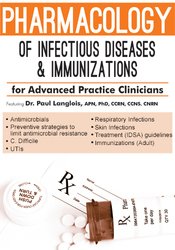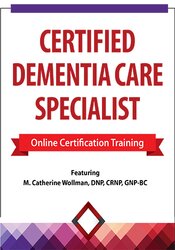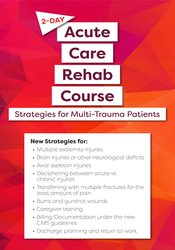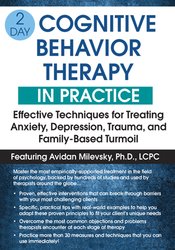🎁 Exclusive Discount Just for You!
Today only: Get 30% OFF this course. Use code MYDEAL30 at checkout. Don’t miss out!
Mrs. Mrs.-Side-sided heart failure. 20 minutes after her admission, she experiences worsening dyspnea.
Dr. Paul Langlois – 2 Day – Managing Patient Emergencies
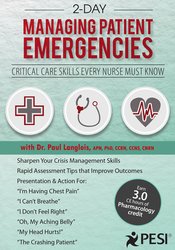
Identifying the RED Flags
- Critical Thinking in a Crisis
- Vital Signs & ABCDs
- Methods of Establishing and Maintaining Airway
- Breathing: More that a rate issue
- Circulation & Perfusion
- Four Methods to Determine Cause: Differential Diagnosis
- Rapid Assessment Techniques
- Important Questions to Ask Patient
- Identifying High-Risk Populations
- Pre-Morbid Conditions
- Age considerations
Cardiovascular Prevention, Presentation and Action “I’m having chest pain”
- Recognizing Arrhythmias – Stable and Unstable – Lethal
- 12-Lead EKG: Just the Down and Dirty
- A Systematic Approach
- Patterns of Ischemia, Injury & Infarct
- Acute Myocardial Injury: STEMI/NSTEMI
- Key Assessments & Interventions
- Guidelines for tPA
- Cath Lab Intervention
- Laboratory Parameters
- Recognizing Subtle Changes
- Heart Failure
- Recent Advances in Caring
- Medication Management
- Managing Intake and output
- Vascular Abnormalities
Respiratory Prevention, Treatment, and Action “I can’t breathe”
- Assessment & Critical Interventions for:
- Pulmonary Embolism
- Pulmonary Edema
- Acute Asthma Attack
- Spontaneous Pneumothorax
- Allergic Reactions
- The Patient Who Does Not Need Assistance?
- O2, CPAP, BiPAP
- Intubation indications
- Positive Pressure Ventilation
- Chest Tube Management
- Every nurse should know the basics of ventilators
- Easy ABG Analysis…Really!
Endocrine Prevention, Presentation and Action for: “I don’t feel right”
- The Differences Between HHNK and DKA
- Hypoglycemia Early Recognition
- Thyroid Storm: Physical and Psychological Symptoms
- Managing Adrenal Crisis
- Lab findings critical
Gastrointestinal Prevention, Presentation, Action for: “My aching belly”
- Warning Signs for Acute Pancreatitis
- Upper vs. Lower GI Bleeding
- Perforated Bowel
- Signs Early of Small Bowel Obstruction – Illeus
- Interpreting Lab Tests
Neurological Prevention, Presentation, and Action for: “My head hurts!”
- Elevated intracranial pressure
- Clues When you Don’t have a Monitor
- Ischemic vs. Hemorrhagic Stroke
- Inclusion/Exclusion of tPA
- Essential Assessments-tPA
- Management Strategies for Seizures
- The Patient Withdrawal
- Comparative Analysis of Known and Unknown. Suspected ETOH/Drug Abuse
- Interventions to treat Delirium Tremors
- Critical Labs
Renal Prevention, Presentation, and Action “I can’t make urine”
- Acute vs. Chronic Kidney Disease
- Recognizing Acute Kidney Injury
- The Key Assessments
- Interpreting Lab Data
Pain, Agitation & Delirium
- Analgesics can be too much or too little
- Managing The Bedside Procedure
- Types of Sedating Medicines
- Monitoring is necessary to ensure appropriate compliance
- Delirium: So Many Causes, So Many Options…
- Key Assessments & Interventions
Managing The Decompensating Patient
No Pulse, No Blood Pressure, No Respirations…Now What?
- How to Identify Cardiac Causes
- Street Drugs & Poisoning
- Critical Assessments & Interventions
- MUST LEARN REVERSAL AGENTS
Would you like to receive Dr. Paul Langlois – 2 Day – Managing Patient Emergencies ?
Description:
- Improve your crisis management skills
- You can improve your outcomes with quick assessment tips
- Presentation & Action For:
- “I’m Having Chest Pain”
- “I Can’t Breathe”
- “I Don’t Feel Right”
- “Oh, My Aching Belly”
- “My Head Hurts!”
- “The Crashing Patient”
Mrs. Mrs.-Side-sided heart failure. 20 minutes after her admission, she experiences worsening dyspnea.
- Are you able to deal with her unpredictable condition?
- Are you aware of the importance of respiratory protection?
- What is the best way to treat her hypotension?
Patients in hospitals are more sick than ever. Patients can be found on regular medical floors equipped with central lines and chest tubes, pacemakers, pacemakers, and AICDs. Some nursing homes accept ventilator-equipped patients, while others send patients home on vasoactive drops such as dobutamine. Even though acuity levels are higher, you are still caring for many patients and don’t have the luxury of frequent, comprehensive assessments. It is crucial to quickly assess and then implement the appropriate interventions. You will learn new skills and be ready to handle your next patient crisis.
Course Features
- Lectures 0
- Quizzes 0
- Duration Lifetime access
- Skill level All levels
- Language English
- Students 0
- Assessments Yes

